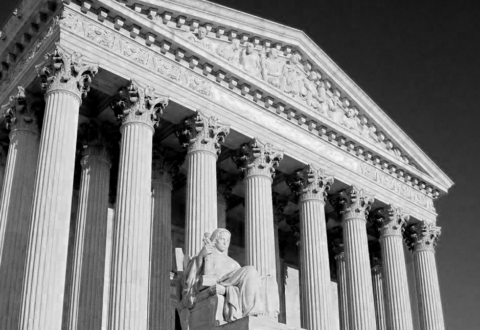Immigration Courts

New Report Shines Light on Detainee Rights Violations in Minnesota
Over the summer, three graduate students at the University of Minnesota’s Humphrey Institute interviewed immigration attorneys and public defenders to document their experiences working with detained immigrants. The result—a heartbreaking account of detainees locked away, without access to counsel or family, in a system where rights and the most minimal detention standards are routinely violated. Read More

Does U.S. Attorney Nomination Send a Mixed Signal on Immigration?
While the Obama administration has spent the past year discussing its plans to reform our broken immigration system, it is the day to day actions that, at times, draw a stark contrast to the hope and promise of a new strategy on U.S. immigration. The nomination of Stephanie Rose to lead the U.S. Attorney’s Office for the Northern District of Iowa seems like a mixed signal to immigration reformers. Rose’s 12-year career in the U.S. Attorney’s office was most notably marked by her role as lead prosecutor on the largest (and most controversial) immigration worksite enforcement in U.S. history. Read More

Supreme Court Hears Case about Immigrants’ Access to Federal Court Review
Last week, the Supreme Court heard arguments in a case that involves an important safeguard for immigrants facing removal from the United States—access to federal court review. The case, Kucana v. Holder, was brought by an asylum seeker from Albania. Mr. Kucana is seeking court review of a government decision depriving him of the opportunity to present his asylum claim. The Seventh Circuit Court of Appeals (based in Chicago) refused to review the government’s decision. Instead, the Seventh Circuit found that in his case, the government has unfettered discretion over a potentially life and death decision. The Supreme Court now is considering whether the Seventh Circuit was right. Read More

Report Highlights Need for Appointed Counsel for Detainees Facing Removal
A report issued this week by the City Bar Justice Center highlights one of the most serious flaws of the removal process: noncitizens are not appointed a lawyer to represent them. The report focuses on the efforts of the City Bar Justice Center and other nonprofit organizations to increase access to legal counsel at the Varick Federal Detention Facility in Manhattan. According to the report, a significant portion of the detainees housed at Varick had possible meritorious claims to relief from removal, such as asylum or an avenue for obtaining a green card. Read More

Board of Immigration Appeals Rules Not to Reopen Old Deportation Cases
A decision by the Board of Immigration Appeals (BIA) last week provides yet more evidence that broken laws create broken government. By refusing to protect eligible applicants for adjustment of status from deportation, the Board eased the way for the Immigration and Customs Enforcement (ICE) to deport someone whose legitimate green card application is pending with United States Citizenship and Immigration Services (USCIS). Read More

U.S. Supreme Court Considers “Collateral Consequences” for Immigrants in Criminal Cases
Today, the U.S. Supreme Court heard arguments in a case posing the question: “If a criminal defense lawyer tells his or her client not to worry about the immigration consequences of pleading guilty, but that advice is wrong and in fact the client will be deported as a result of pleading guilty, can the client withdraw the plea?” In this case, Padilla v. Kentucky, the Supreme Court of the State of Kentucky said no: even incorrect advice about the immigration result is not a sufficient reason to reopen a case because deportation (now known officially as “removal”) from the U.S. is a “collateral” consequence—that is, not something directly related to the criminal case. Kentucky’s lawyer argued today that the High Court should uphold that decision. Read More

Supreme Court to Hear Two Cases Affecting Fair Process for Immigrants
Today, the United States Supreme Court opens its October session. Among the cases it will hear this term, two may have a significant effect on immigrants. The first case involves the intersection of the criminal justice system and immigration and the important role that lawyers play in safeguarding the rights of immigrants. The second case deals with immigrants’ access to federal court review—review which provides necessary oversight of government decision-making in immigration cases. These cases present the Supreme Court with opportunities to reaffirm that immigrants must be afforded fair process and a meaningful opportunity to be heard. Read More

Immigrants with Mental Disabilities Are Deprived Their Day in Court
The U.S. legal system is premised on the idea that every party in a case is afforded his or her day in court and a meaningful opportunity to be heard. Yet, for individuals with mental disabilities facing deportation from the United States—including those whose removal will mean being permanently barred from ever returning—that day may never arrive. Read More
Make a contribution
Make a direct impact on the lives of immigrants.

